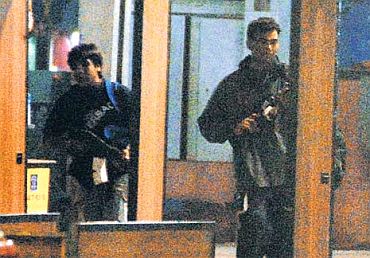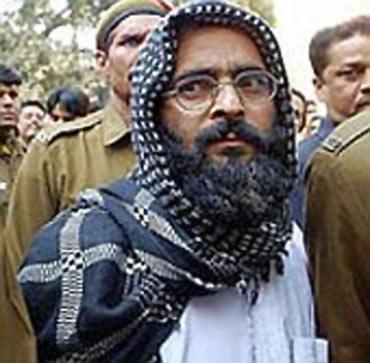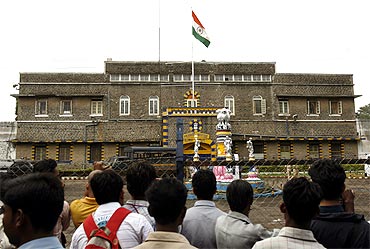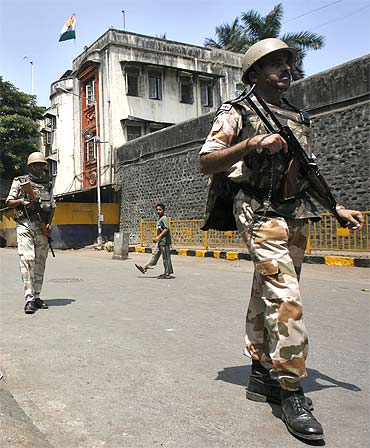 | « Back to article | Print this article |
The long wait ahead for Kasab
The Bombay high court on Monday upheld the death sentence given by a special court to Ajmal Kasab, the lone surviving terrorist involved in the 26/11 terror strike on Mumbai in November, 2008.
If Kasab's death sentence is carried out, he will become the 56th prisoner since independence to face the gallows. But India has as many as 309 prisoners on death row already, including six women.
Though the law clearly prescribes that death row convicts shouldn't be made to wait for too long and their cases ought to be treated as high priority, the ground reality is starkly different.
Reportage: Vicky Nanjappa
Delay in taking a decision at the top-level
Afzal Guru, who was found guilty in the Parliament attack case, is India's most high-profile death row convict. His clemency petition is pending before President Pratibha Patil, who is yet to take a call in this case.
While the President has the right to take his/her own decision, he/she usually refers the plea to Parliament for its opinion. Legal experts point out that the delay in taking a final decision about a death penalty usually occurs at the top-most levels.
Bihar has the most number of convicts on death row -- 80, while Uttar Pradesh follows closely behind with 72 such prisoners. There are 39 convicts on death row in Maharashtra, including Kasab. Among these, 29 petitions are pending before the President for clemency and the rest of the cases are being appealed, either in Supreme Court or in the respective high courts.
Who will hang Kasab?
Apart from the long wait till the end, another issue that is bound to worry the authorities is: who will hang Kasab? The hunt for a hang man to carry out the death sentence will have to begin anew, since the Maharashtra government doesn't have a hangman on its pay roll.
Jhadhav, the last hangman employed by the Maharashtra government, retired in 1995. In Maharashtra, capital punishment is carried out in two jails -- Nagpur and Yerawada.
Kasab is likely to be hanged at Yerawada prison in Pune as it is close to Mumbai, where the terrorist is currently lodged in Arthur Road Jail.
Given the elaborate security arrangements necessary for Kasab, it would be easier to shift him to Pune.
Number of hangmen has decreased
As the cases of actual execution dwindle in India, only one hangman remains for the job, which anyway has few applicants. Incidentally, this sole hangman is Prabhat Mulick, whose father Nata Mulick also worked as a hangman. Nata had carried out the death sentence of Dhananjoy Chatterjee in 2004, who was found guilty of raping and murdering a teenager in Kolkata.
But Prabhat is yet to receive an approval to carry out the job from the West Bengal government. The Maharashtra government is expected to urge the Bengal government to complete this formality and then request it to send Prabhat to the state for the Kasab case.
The number of hangmen in India has decreased steadily due to a number of reasons. The job neither pays a decent salary nor offers any of the benefits that a government employee is entitled to. The disturbing nature of the job also plays a part in discouraging potential applicants.



